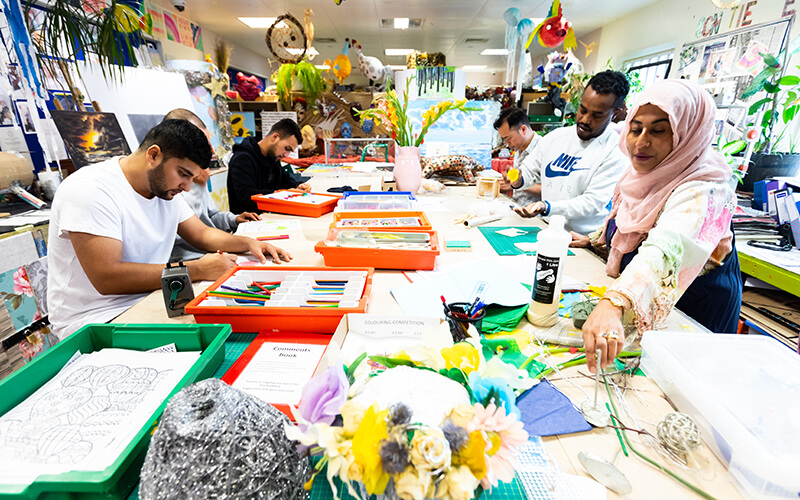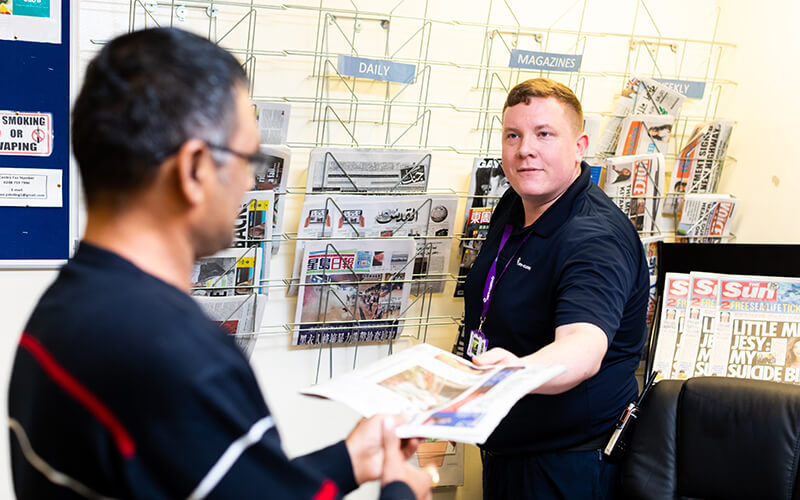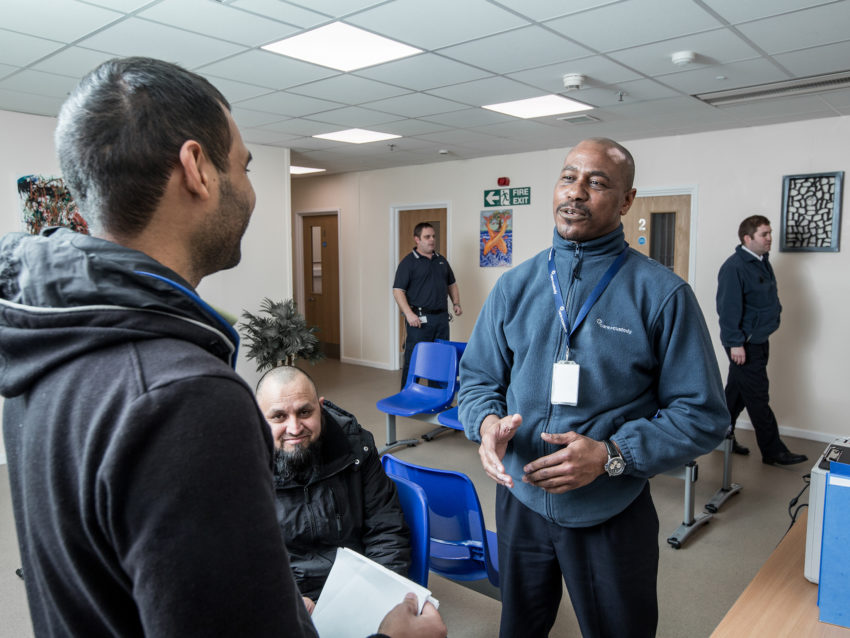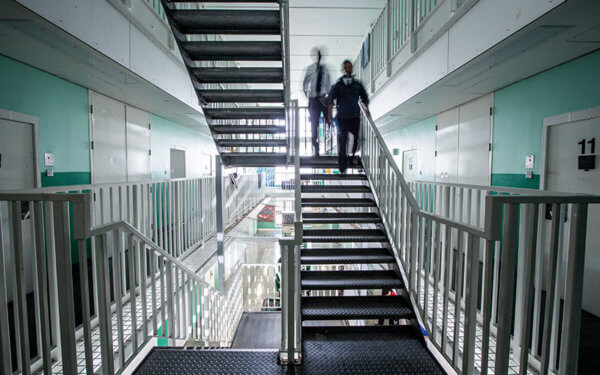Soft power is key to solid prisoner transformation
Care & Custody Prison Solutions Director and former prison director, Lisette Saunders, reveals compassionate measures that help offenders help themselves.

Over many years working with prisoners, I have never wavered from my belief in a restorative, rehabilitative culture. People may mutter about this being the soft approach, but I would argue to the contrary. To reduce reoffending in line with Ministry of Justice strategy, organisations running prisons must focus on turning lives around. I’ve been privileged to see it happen for myself: one prisoner I worked with pursued a successful career in sport and now works with the Prince’s Trust, while another sits on the board of a similarly prominent charity. There are many more like them.
Realising this change is far from easy, and it is in fact the prisoner who has the hardest work to do.
“With our help they must confront negative behaviour, take responsibility and be accountable.”
With our help they must confront negative behaviour, take responsibility and be accountable. It’s important prisoners address what led them to turn to crime to both reduce their chances of reoffending and to keep the public safe. The following strategies help to achieve this.
With, not to!
Prisoners must be part of the process rather than subject to it. A dictatorial culture is counterproductive. We’re all human, so we can appreciate that being ordered around is a sure way to create resentment and negative attitudes. To reduce reoffending, prisoners should be engaged and motivated to address personal issues, and to gain work experience or qualifications that will support a different lifestyle outside. The concept of ‘High Challenge: High Support’ comes into play. In other words, where a prisoner shows a desire to change, the equivalent level of support required to realise it must be provided. They are masters of their own destiny.

Family values
Often prisoners have unresolved family issues and need help to overcome them. Regular family visits should be facilitated. Mitie works with an expert partner that leads parenting classes, where participants learn useful skills relating to everyday life that many of us take for granted. Targeted courses for 18 to 24-year-olds help younger prisoners explore the link between the people they mix with, how they became involved in crime, and its impact on their relationships.
“The whole family effectively serves the sentence, so assistance and advice are available.”
The whole family effectively serves the sentence, so assistance and advice are available to prisoners’ relatives and special schemes help to lighten the burden on the parent outside. For example, homework clubs allow kids to spend quality time with the parent serving a prison sentence. Rehabilitation is helped immensely by strong family bonds, so they should be built and maintained.
Education, education, education
Some prisoners can struggle to read and write if they have opted out of school. Prison offers the opportunity to continue education in a way that accounts for each individual’s needs, whether that be a learning disability, neurodiversity or otherwise. Recognising what each prisoner wants to achieve is key. There is no point forcing them into courses in which they have no interest. Individual prisoner learning plans should be created, in line with the MoJ’s Prisons Strategy White Paper. Release on Temporary Licence (ROTL) placements, whereby prisoners gain work experience in the community, can benefit those who meet the criteria. If prisoners are supported to pursue a career they enjoy, they are more likely to stick with it, aiding their rehabilitation.

Be your best self
Substance misuse and poor lifestyles are common among prisoners, together with mental and physical health problems. Prison residents should therefore have access to both addiction support and good healthcare.
“Successful rehabilitation goes beyond addressing health issues.”
However, successful rehabilitation goes beyond addressing health issues. When prisoners come to value themselves and grasp the opportunities offered by a well-rounded life, the chance of reoffending reduces significantly. As part of supporting prisoners to improve their lifestyle and self-image, Mitie’s in-cell technology platform can offer guided meditation, nutrition advice, sleep assistance programmes and other wellbeing initiatives. Helping prisoners to become more robust, both mentally and physically, has a powerful restorative effect.
Look in the mirror
Prisons can have a destabilising effect on some individuals. After all, they lose access to friends, family and their personal technology and devices, and are told when to get up and when to go to bed. They also have a lot of time to reflect, which is to be encouraged. To lead in this regard, Mitie partners with a former prisoner, who has been through the system. He asks prisoners to think about their life plan. What do they really want? What will they achieve? Do they aspire to a steady job? A husband or wife? Kids? Taking time to think it through brings hope and resilience, taking aspirations beyond the walls of the prison to the world outside. Helping prisoners understand what they want from life, and assisting with an action plan to help realise their aims, can have a remarkable effect on rehabilitation.

Lisette has over 20 years’ experience in the prison sector and won a Butler Trust Award for transforming the management and care of prisoners with learning disabilities at HMP Parc in 2013.
Mitie is on the Prison Operator Service Framework and delivers a range of services at HMP Brixton and HMP & YOI Isis in London, which have a combined capacity of approximately 1,400 prisoners.
Read next

How facilities management unlocks prisoner potential through the gate
The days of transactional facilities management (FM) in prisons are long gone. Prisoner-focused delivery is shaping the sector, with the Ministry of Justice (MoJ) confirming a reduction in reoffending is one of its three…
Mitie Care & Custody awarded 2-year contract to manage new immigration removal centre for women on behalf of the Home Office
Replacing Yarl’s Wood as the main IRC for detained women, the services provided are based upon the current best practices for IRCs and provide increased staffing levels, improved use of modern technology within the…
Mitie appointed to the Prison Operator Services framework
Mitie’s Care & Custody division has been named as a supplier on the Prison Operator Services (POS) framework.